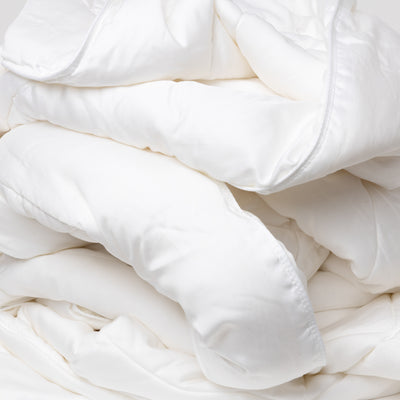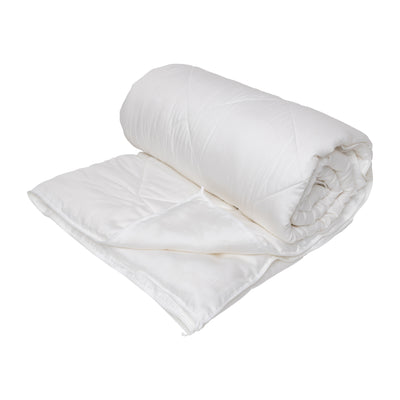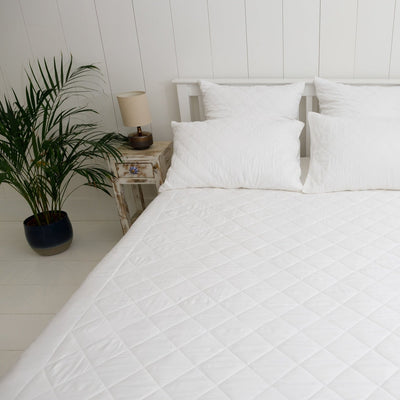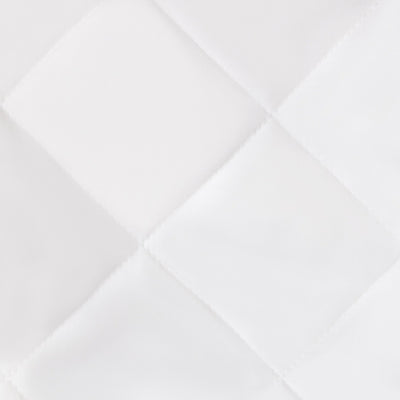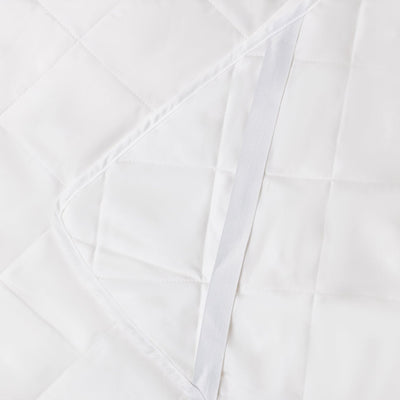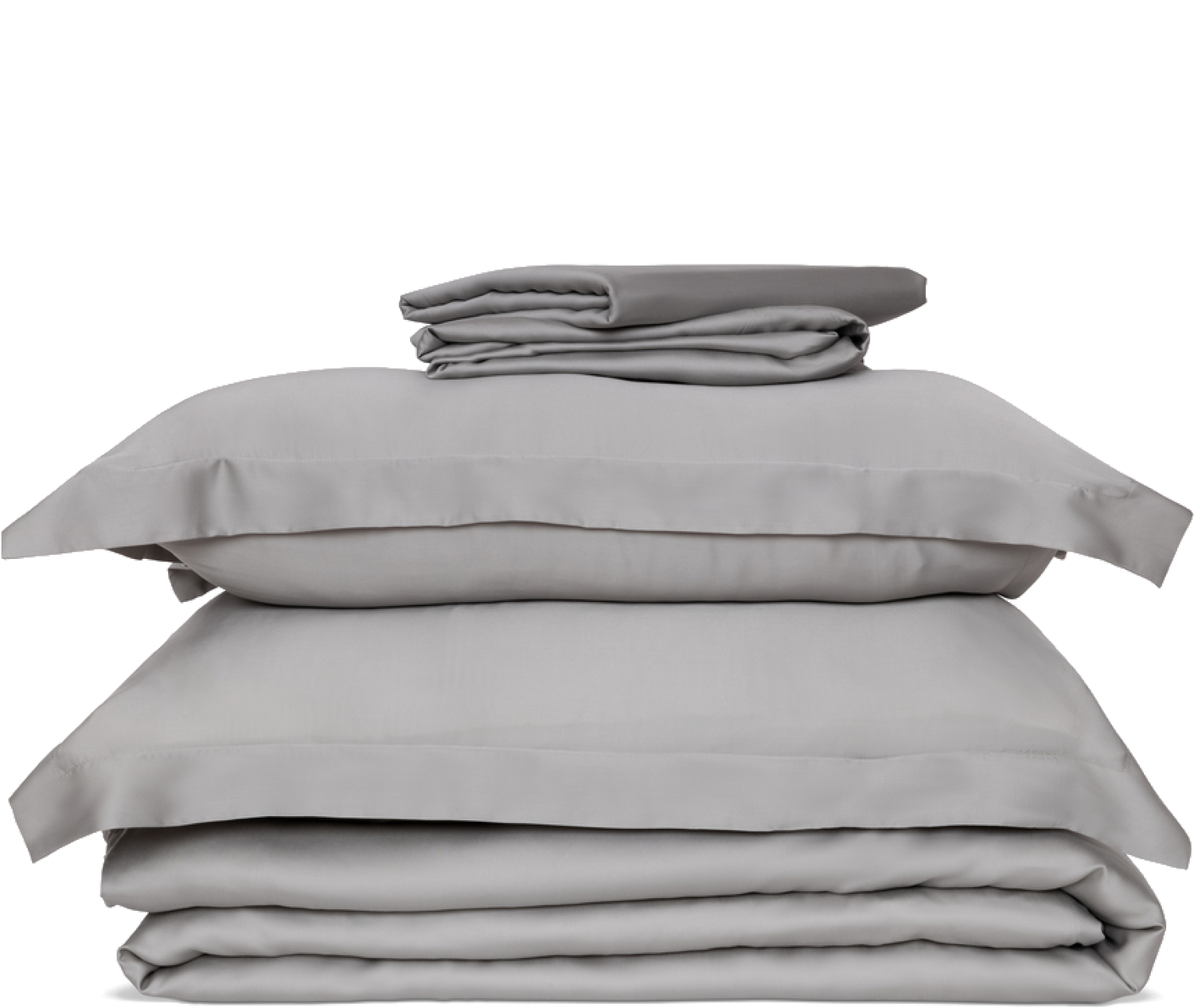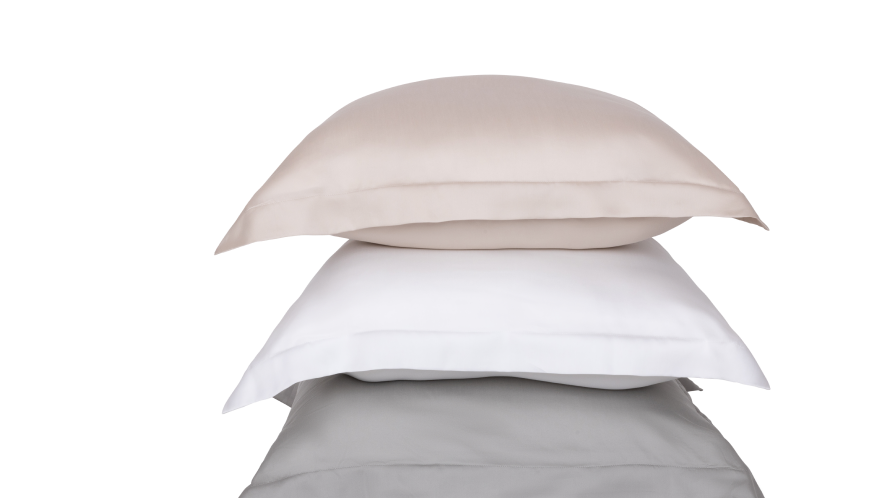Cotton has become one of the most widely produced commodities thanks to the huge global demand. It has also been termed the world’s ‘dirtiest’ crop due to the large amount of pesticides used.
Organic cotton was developed to make cotton production cleaner and greener but is this organic fabric really the answer to make up for the sustainability of cotton?
ORGANIC COTTON KEY QUESTIONS AND INFORMATION
Table of Contents
1. WHAT IS ORGANIC COTTON?
Standard cotton and organic cotton have many similarities. They are both hugely versatile and can be used for clothing, bedding, towels, home furnishings and more. This versatility is why cotton of any kind is in high demand across the world.
The main differences between standard and organic cotton are the quality of the product and the method of production. Organic, natural cotton is typically a much higher quality and is made in a much more environmentally friendly process.
Cotton has been used for thousands of years with evidence reaching back as far as 6000 BC. Organic cotton on the other hand was first cultivated in the late 1980’s as a more sustainable alternative which has gradually seen a rise in demand.
To be organic, the cotton must reach a set of certified standards that govern every stage of the production process. Organic practices begin at the very start with the planting of seeds.
The cotton seeds used must be completely natural with no GMO in order for the fabric to be considered organic. GMO cotton seeds can reduce the biodiversity of the crop and often lead to the increased use of herbicides.
Toxic chemicals, artificial fertilisers, pesticides and herbicides are banned throughout the production of organic cotton which makes it overall better for the soil, the local environment, ecosystems and workers.
Plantations that grow cotton to organic standards typically ensure that they have been officially certified as organic so that it can be easily identified by manufacturers and consumers.
Currently, the two best and most trustworthy certifications for organic cotton products are the Global Organic Textile Standard (GOTS) and the Organic Content Standards (OCS). When shopping around for organic cotton products, buyers should keep a look out for at least one of these certifications.
2. HOW IS ORGANIC COTTON MADE?
The initial ingredients for organic cotton are non-GMO seeds and healthy soil. The seeds ensure a good level of biodiversity is maintained which keeps the cotton safe as no single predator will be able to wipe out the entire crop.
Healthy soil can be reused, leading to less waste of land. To keep the soil healthy and fertile, farmers implement methods of recycling nutrients. Compost is commonly used as well as crop rotations and cover crops.

When growing conventional cotton, a number of toxic herbicides and pesticides are used to ward off unwanted weeds and pests. During organic cotton production, weeds are controlled with the physical use of hoes.
This manual labour is accompanied by careful crop planting plans. Plans incorporate crop rotations as well as the planting of several different crops together. These combined efforts are enough to keep weeds under control.
Once grown, the cotton is harvested. Organic cotton is hand-picked whereas conventional cotton is largely harvested mechanically. Hand-picking the cotton takes much longer but results in longer, stronger, softer fibres.
The picked cotton is then cleaned, and the fibre is separated from other plant material such as leaves, lint and soil. Conventional cotton production would then use a series of chemicals, oils and bleaches to wash and process the fibre. Organic cotton is instead treated with natural alternatives that are easily biodegradable.
Finally, the organic cotton fibres are spun into yarn and then weaved or knitted into the end product.
3. ORGANIC COTTON BENEFITS
There are several advantages of organic cotton....

Softness
Because organic cotton is handpicked, the individual fibres break less and tend to be longer. This results in a much softer and nicer feeling fabric than conventional cotton which has shorter fibres,
Breathability
Organic cotton is much more breathable than both conventional cotton and many other fabrics. This is largely due to its high absorbency. Organic cotton can absorb water 2.7 times heavier than its own weight. Moisture from the body is easily wicked away, leaving the skin feeling dry and comfortable.
Durability
The strength and durability of organic cotton is also due to its longer and stronger fibres. As well as being hand-picked, the fibres of organic cotton aren’t weakened or broken by synthetic chemicals. The stronger fibres lead to a stronger fabric that is able to endure much more wear and usage than conventional cotton.
Great for Skin
Thanks to its softer feel, organic cotton causes much less irritation to the skin. Those with sensitive skin in particular will appreciate the smoother, less coarse feel of organic cotton as it rubs against the skin.
Additionally, organic cotton is hypoallergenic which can protect those with allergies or skin issues from unwanted common allergens such as dust mites or pet dander.
4. PROBLEMS WITH ORGANIC COTTON
Production of organic cotton is a much lengthier process than the production of regular cotton. The planning, growth and harvesting are all much more time-consuming, especially as organic cotton is hand-picked. Additionally, non-GMO seeds are more expensive than GMO seeds.
Naturally, as organic cotton takes longer to produce and with much more manual labour, the price of organic cotton is considerably higher than conventional cotton. Although this is expected, it makes organic cotton less accessible.
Instead of being a global alternative to the environmental processes of conventional cotton, it is priced alongside luxury fabric which means fewer people will be able to afford it and will have to stick with conventional cotton.
The labour-intensive aspect of organic cotton could pose a serious problem. The fields must be manually hoed, and the cotton hand-picked. The certifications for organic cotton are based solely on sustainability and their effect on the planet, not on the ethical treatment of workers.
As many areas of cotton production are in third-world countries, it can be difficult to guarantee that field workers aren’t over-worked or underpaid. As well as sustainability certificates, organic cotton an also qualify for a Fairtrade label which lets the consumer know that farmers and workers are getting fair pay and treatment for their work.
5. IS ORGANIC COTTON SUSTAINIABLE?

Conventional cotton production involves the use of genetically modified seeds. These seeds are cheaper and easier to grow but require the use of intensive herbicides and pesticides. Organic cotton uses natural seeds to grow crops. Although more expensive, the natural seeds maintain biodiversity in the ecosystem which benefits the local environment.
When growing organic cotton, an important factor is making sure the soil is fertile and healthy. Composting and crop rotation are just some of the ways that farmers can sustain the soil.
Healthy soil is important for the environment as it can protect from weather conditions. In droughts it will be able to produce food for longer and in floods it will soak up more water.
Conventional cotton production requires excessive amounts of unnatural pesticides, insecticides, herbicides and fertilisers whereas organic cotton only uses natural chemicals such as sulphur dust.
The reduction of unnatural pesticides is hugely beneficial for the health of the local environment and workers. Additionally, synthetic pesticides release the greenhouse gas nitrogen into the air and the less they are used, the less greenhouse gas is produced.
Cotton is a famously thirsty crop to grow and the production of conventional cotton requires vast amounts of water. Organic cotton is significantly less water-intensive leading to lower demands on local water systems.
Although organic cotton is undoubtedly better than conventional cotton in terms of water use, it is still more demanding than many other fabric alternatives. Eco-friendly fabrics made from bamboo, beech trees or eucalyptus (such as Tencel™) require much less water for both crop growth and fabric production.
Additionally, in order to grow cotton without the use of unnatural pesticides, it is grown alongside other plants. Ultimately, this results in more land being used to produce less cotton whereas other crops are more compact and require less land space.
Finally, once the organic cotton products reach the end of their useful life, they will not be problematic in the long term. Organic cotton comes from a natural source and hasn’t been treated with any unnatural additives. It is therefore completely biodegradable and will break down once in the soil.
Some convectional cotton or cotton that is made non-organically may still be marketed as organic cotton in an attempt to greenwash the product and convince customers to buy it. Genuine organic cotton will be labelled with a certification that guarantees it is produced to organic standards.
6. ORGANIC COTTON VS CONVENTIONAL COTTON
Conventional cotton production is responsible for a large percentage of global pesticide use and a huge proportion of global insecticides. This level of unnatural chemicals is catastrophic for local ecosystems and the health of those working in fields and factories.
Organic cotton is emphatically better for both the environment and human health thanks to the avoidance of chemical pesticides, insecticides, fertilizers and herbicides. It uses a holistic approach that workers with soil and the local environment to produce healthier crops.
Unfortunately, these green efforts come at a price. Organic cotton production takes much longer and produces a lower yield. It is therefore much more expensive and much less accessible.
Conventional cotton is still in high demand and is one of the most widely used fabrics. However, the use and production of organic cotton continues to grow with many new countries setting up organic cotton production facilities.
7. ALTERNATIVES TO ORGANIC COTTON
Organic cotton is a brilliant and innovative solution to the terribly harmful methods of conventional cotton production. If the choice was between organic and conventional cotton, organic would always win in terms of sustainability and quality.
However, despite its benefits, it is not the most sustainable or the highest quality fabric available. Some newly developed semi-synthetic fabrics such as Tencel™ can be considered a much better alternative.
Tencel™ is a fabric made from the regenerated cellulose from the wood pulp of sustainably sourced crops. The crops used require much less water and less space is needed. One metre of Tencel™ fabric requires a smaller amount of land to produce than a similar meter of organic cotton.
While any movement to more sustainable materials is a step in the right direction, it is always worth striving for the most sustainable option available.

Visit our store for a range of Eucalyptus Tencel bedding.



